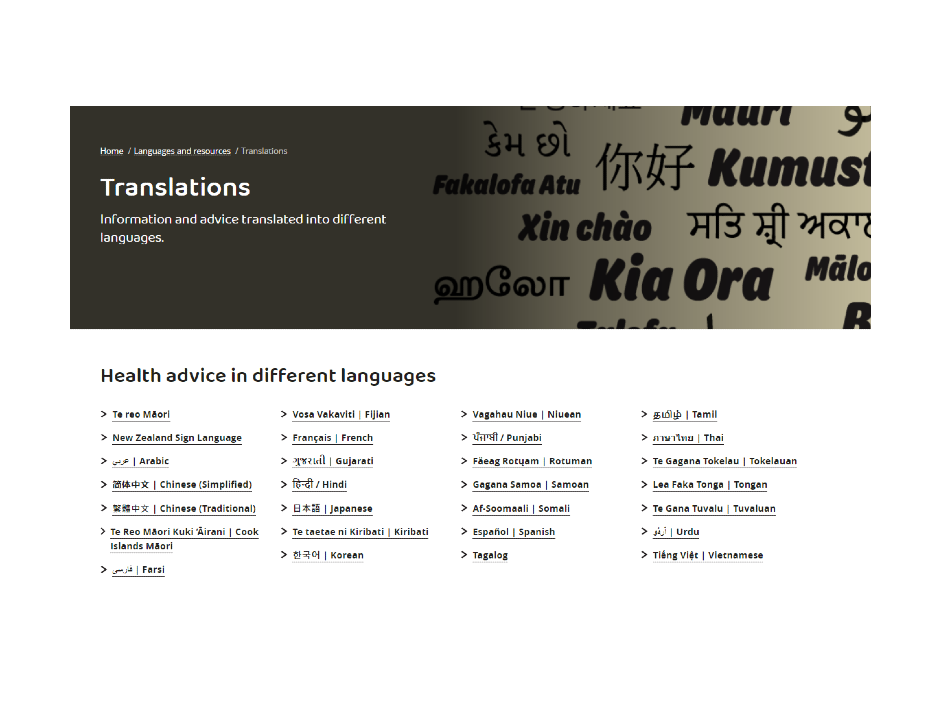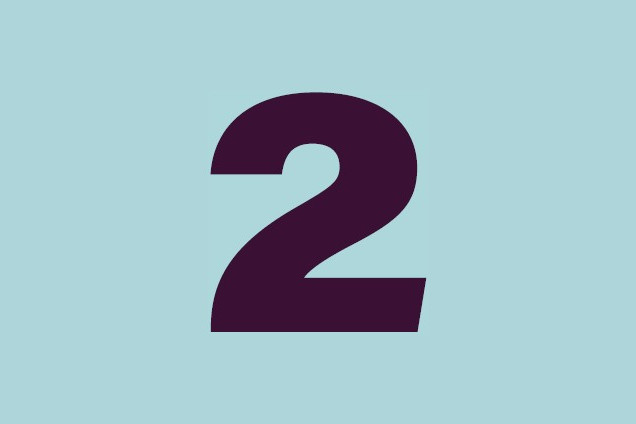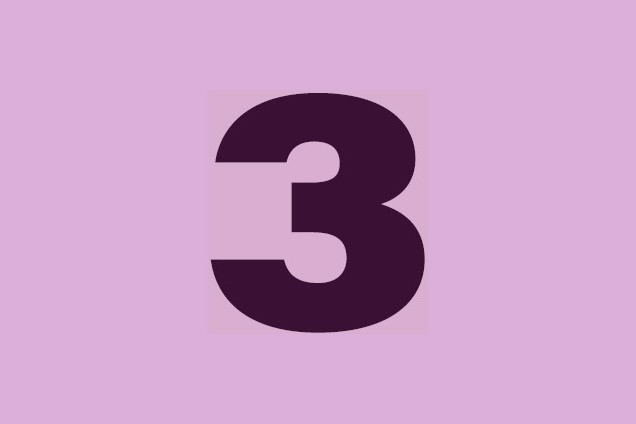On this page
Download the guidance
Download Unlocking Language Barriers (PDF)
Download the Quick Guide
We have also produced a summarised version of the guide, providing the key takeaways from the full guidance.
Download Unlocking Language Barriers - Quick Guide (PDF)
Introduction | Te whakataki
Translation plays an essential role in the spread of ideas and information across communities, cultures, and international borders. Translation is key to many areas of life, including understanding culture and traditions, understanding history, conducting business, travelling, promoting diversity and inclusion, and participating in society.
Our population has become and continues to develop into one with incredible diversity. Approximately 20% of Aotearoa New Zealand’s population identifies as coming from an ethnic community (Asian, Continental European, Middle Eastern, Latin American, or African), 17% identify as Māori, and 8% identify as Pacific. By 2033, it is estimated these populations will grow to 25% for ethnic communities, 19% for Māori and 10% for Pacific respectively, when compared to the total population.
We know that for some communities in Aotearoa New Zealand, English language barriers exist, and there is a reliance on language professionals such as interpreters and translators for information and understanding.
To ensure effective communications, the needs of our diverse communities should be considered from the outset. An investment in translating information up front is likely to have benefits and prevent issues down the track.
Providing equitable access to government information and services is also critical to building trust with CALD communities, so they feel respected and included. They are more likely to engage with government if they can do so in a way that works for them. This is particularly important in a global environment of eroding trust in public institutions.
Language barriers should not preclude any communities in Aotearoa New Zealand from accessing important or essential government services, as this may lead to inequitable outcomes for CALD communities.
About this guide | Mō tēnei aratohu
This guide has three sections which focus on different aspects of translation and communication with CALD communities.
This is a cross-government collaboration, which has had input from several public service agencies, including the Department of Internal Affairs | Te Tari Taiwhenua, the Ministry for Pacific Peoples | Te Manatū mō ngā Iwi ō te Moana-nui-ā-Kiwa, and Whaikaha - Ministry of Disabled People.
We have also provided several case studies from the Department of the Prime Minister and Cabinet | Te Tari o te Pirimia me te Komiti Matua, the Ministry for Business, Innovation and Employment | Hīkina Whakatutuki, and the National Emergency Management Agency | Te Rākau Whakamarumaru that can be used to help you determine your own requirements.
-
Understanding Translation | Ko te mārama ki ngā mahi whakamāori kōreroUnderstand the translation process and identify key things to consider before commissioning translations.Find out more
-
Choosing your languages | Te kōwhiri i ō reoFind information to help you choose which languages you may want to make your information available in.Find out more
-
Reaching your audience | Te toro atu ki ō minengaFind out what we know about media consumption habits of some of Aotearoa New Zealand’s ethnic communities.Find out more




